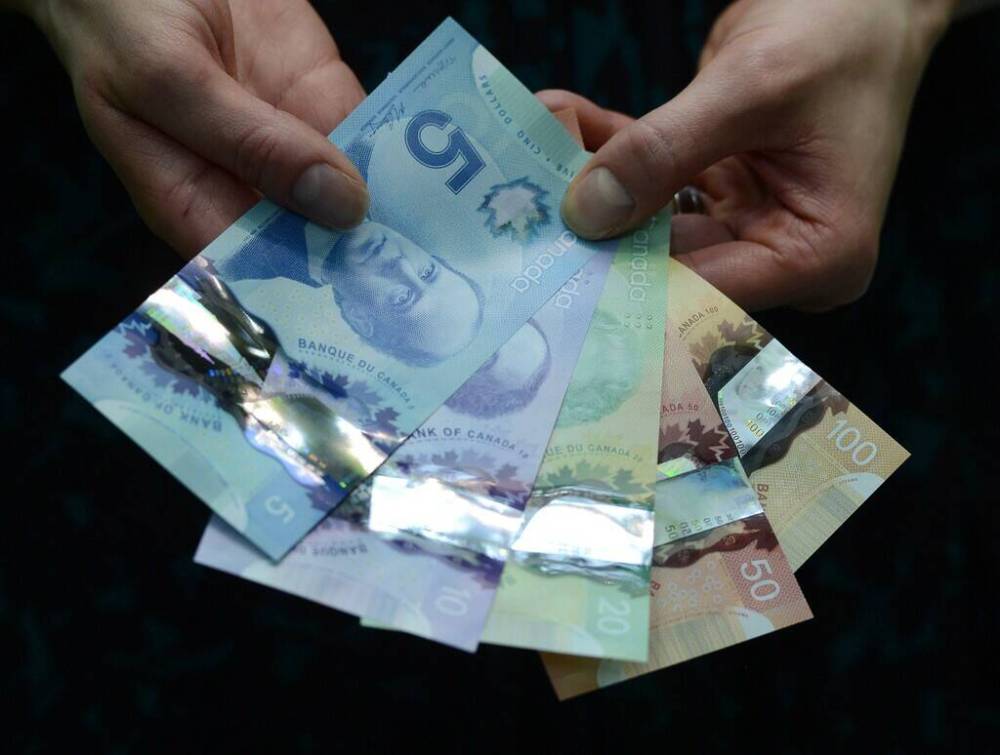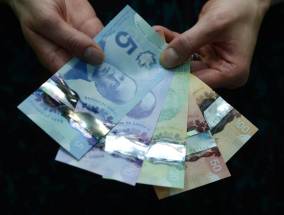Time to clean up Canada’s dirty-money problem
Read this article for free:
or
Already have an account? Log in here »
To continue reading, please subscribe:
Monthly Digital Subscription
$0 for the first 4 weeks*
- Enjoy unlimited reading on winnipegfreepress.com
- Read the E-Edition, our digital replica newspaper
- Access News Break, our award-winning app
- Play interactive puzzles
*No charge for 4 weeks then price increases to the regular rate of $19.00 plus GST every four weeks. Offer available to new and qualified returning subscribers only. Cancel any time.
Monthly Digital Subscription
$4.75/week*
- Enjoy unlimited reading on winnipegfreepress.com
- Read the E-Edition, our digital replica newspaper
- Access News Break, our award-winning app
- Play interactive puzzles
*Billed as $19 plus GST every four weeks. Cancel any time.
To continue reading, please subscribe:
Add Free Press access to your Brandon Sun subscription for only an additional
$1 for the first 4 weeks*
*Your next subscription payment will increase by $1.00 and you will be charged $16.99 plus GST for four weeks. After four weeks, your payment will increase to $23.99 plus GST every four weeks.
Read unlimited articles for free today:
or
Already have an account? Log in here »
Hey there, time traveller!
This article was published 09/03/2022 (1373 days ago), so information in it may no longer be current.
A growing public disdain for Russian oligarchs should be seen by Ottawa as impetus to fast-track plans to shed Canada’s reputation as a good place for the global elite to hide their wealth.
The unpardonable invasion of Ukraine has heightened contempt for the sycophantic multi-billionaires who bolster Russian President Vladmir Putin. Undoubtedly, it’s also bolstered public will for the federal government to increase its effort to close the back doors through which Canada currently admits shady financial dealings.
Easier said than done, many argue. The first step in rooting out secretive deals by nefarious investors such as oligarchs is to untangle the layers of financial flim-flam.
Canada was already working to make it easier to track clandestine investments to the real owners when, on Feb. 24, Russian tanks rolled across the Ukraine border and the world moved to freeze the holdings of some Russians. On Monday, Prime Minister Justin Trudeau announced Canada is imposing new sanctions on 10 Russians complicit in the “unjustified” invasion of Ukraine.

Plans to create a beneficial ownership registry had been announced in 2021 by Minister of Finance Chrystia Freeland, who said the aim was “to catch those who attempt to launder money, evade taxes, or commit other complex financial crimes.”
Unfortunately for the immediate purpose of sanctioning Russians and others who hide their money in Canada, Ottawa’s improvements to the ownership registry are not expected until 2025. The four-year time plan was disappointing, although not surprising given the complexities that abound in attempting to illuminate the dark world of corporate beneficial ownership.
Civil servants trying to expose a corporation’s true roots are typically out-staffed and out-salaried by legions of legal facilitators who specialize in avoiding taxes and erecting layers of ownership misdirection, often bouncing a single asset through several unnamed shell corporations in off-shore jurisdictions where scrutiny is difficult.
The need for Ottawa to improve corporate-ownership transparency was exposed by an investigation in 2017 by the Toronto Star, CBC and the International Consortium of Investigative Journalists. It found Canada has a reputation as a tax haven.
The need for Ottawa to improve corporate-ownership transparency was exposed by an investigation in 2017 by the Toronto Star, CBC and the International Consortium of Investigative Journalists. It found Canada has a reputation as a tax haven.
The investigation showed shell companies can be easily set up in Canada with less scrutiny than is required for getting a library card. Under current rules, Canada has signed tax agreements with 115 countries, more than any other country in the world, smoothing the way for tax cheats to move money in and out of this country.
What if company owners, such as the aforementioned oligarchs, don’t want to be identified in corporate registries? In Canada, it’s not a problem. Owners don’t have to appear, and can pay lawyers to stand in on all public filings.
Canada’s appeal as a good place to hide wealth and make transactions appear legitimate even has an unflattering nickname — “snow washing.”
Canada’s appeal as a good place to hide wealth and make transactions appear legitimate even has an unflattering nickname– “snow washing.”
It was a relief in 2021 that Canada announced it finally plans to toughen corporate-ownership regulations but, in light of the public revulsion in the past two weeks regarding Russian oligarchs, Ottawa should hasten its efforts. Canada needs a transparent registry that requires the verifiable ownership of property owners and corporations, and there should be penalties for non-compliance.
If it takes more money than the $304.1 million over five years Ottawa has already allotted to beef up the Canada Revenue Agency’s ability to sniff out corporate shape-shifting, so be it. The extra expense will likely pay for itself with extra tax revenue.
It’s to Canada’s shame that this country is considered an easy target for billionaires to hide their wealth. To stand with Ukraine is to confront the oligarchs and their dirty money.









